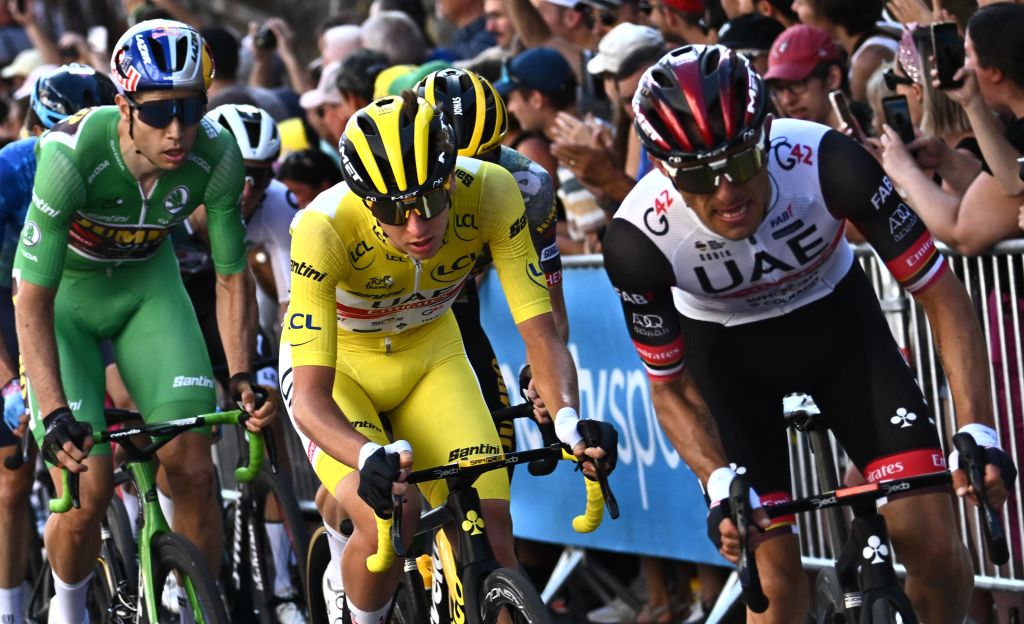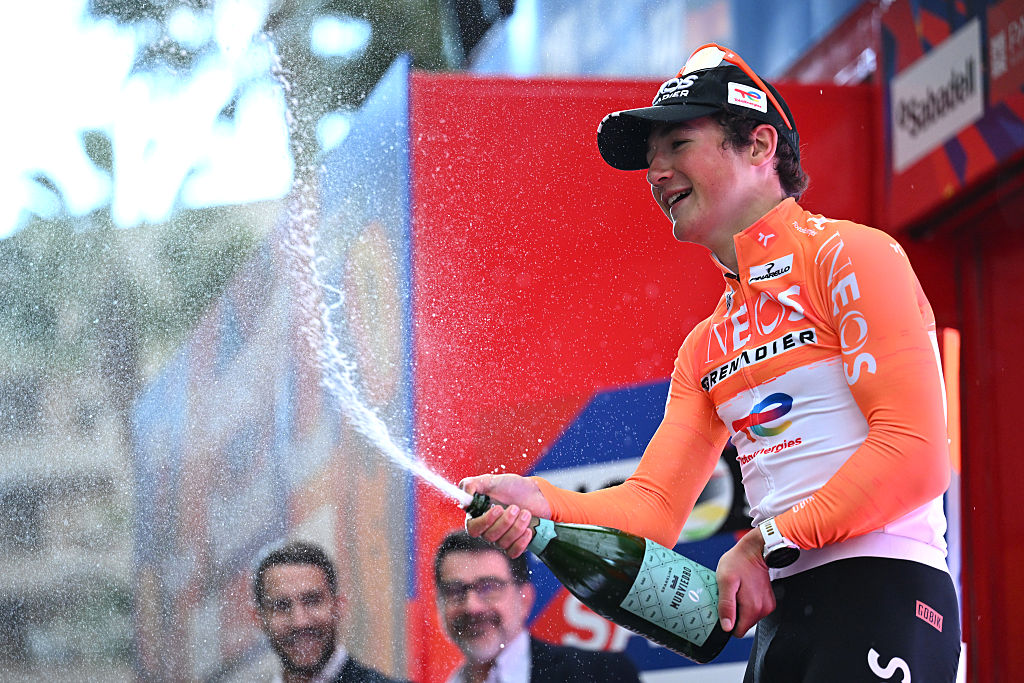Majka continues in Tour de France despite positive COVID-19 test
'He is asymptomatic has a very low risk of infectivity' says UAE team doctor

The latest race content, interviews, features, reviews and expert buying guides, direct to your inbox!
You are now subscribed
Your newsletter sign-up was successful
Tour de France leader Tadej Pogačar faced a second setback on Tuesday as it was confirmed by his squad that, following teammate George Bennett's abandon due to a positive COVID-19 case, a second key mountain rider, Rafal Majka, was also positive.
The Polish climber has, however, been given the green light to continue because he has a low viral load and has been deemed non-contagious, in similar circumstances to stage 9 winner Bob Jungels (AG2R Citroën)
Together with teammates Vegard Stake Laengen and Bennett, Majka is the third UAE Team Emirates rider to test positive since last Friday morning.
In a statement issued during stage 10, UAE Team Emirates medical director Adriano Rotunno stated: "As per our internal protocols Rafal Majka was tested for Covid-19 and returned a positive result this morning. He is asymptomatic and analysing his PCR found he had a very low risk of infectivity, similar to the case of Bob Jungels earlier in the race.
"As per protocol we reported it to the UCI medical team this morning, who granted Rafal permission to take the start just prior to race departure. We are aware Rafal's clinical picture and are closely monitoring his situation."
After Bennett's abandon, Majka's positive for COVID-19 is yet more bad news for Tour leader Tadej Pogačar with three key Alpine stages this week. Pogačar himself described Thursday's stage to Alpe d'Huez as the 'queen stage' of the entire Tour.
As for how Majka can continue in the race despite testing positive for COVID-19, the answer, as Cyclingnews reported on the Jungels' case at the start of the Tour, lies in what's called a CT - standing for Cycle Threshold - score.
The latest race content, interviews, features, reviews and expert buying guides, direct to your inbox!
PCR tests work through a device that cycles the sample and mops up viral particles as it goes around. The longer it takes to find the virus, the higher the CT score, and the lower the viral load. The lower the number of cycles needed to hit the virus, the lower the score, and the higher the viral load.
As Rotunno himself told Cyclingnews at the start of the Tour: "The virus is a strange thing. Your PCR test can still be positive weeks and months after you catch it.
"The PCR can pick up a thing called viral ghosting, so it picks up old virus. Even if you have old virus, you're not infectious, but because you're PCR is positive, people are going to think 'this person is positive'."
Rotunno did not specify the numbers needed for a rider to be considered non-contagious but AG2R Citroën doctor Thomas Klimaschka told Cyclingnews that a CT score in excess of 35 was considered safe. He also indicated the importance of multiple-day testing to check if the score is going up or down, although UAE Team Emirates have not indicated whether or not this has been the case with Majka.
In any case, decisions are taken collectively after three-way discussions between the team doctor, the race doctor, and the UCI's chief medical officer.
Rotunno had indicated that the CT score was only one part of the puzzle.
"You would also have to take their clinical picture, check the body is fine, they're not febrile, hopefully check the heart out, and if all the boxes are ticked and they're deemed medically fit, despite it appearing on the PCR, they're not infectious and they're safe to ride," he said at the start of the Tour.
"It's not always black and white, but you can generally come up with a logical decision. It's potentially open to abuse but you would hope that everyone ticks all the boxes to make sure it's safe to proceed."
Together with BikeExchange-Jayco's Luke Durbridge, Majka is the third rider to return a positive test for COVID-19 since the entire Tour de France peloton was tested as part of a rest day protocol on Sunday evening. No rider returned a positive test.
Alasdair Fotheringham has been reporting on cycling since 1991. He has covered every Tour de France since 1992 bar one, as well as numerous other bike races of all shapes and sizes, ranging from the Olympic Games in 2008 to the now sadly defunct Subida a Urkiola hill climb in Spain. As well as working for Cyclingnews, he has also written for The Independent, The Guardian, ProCycling, The Express and Reuters.

